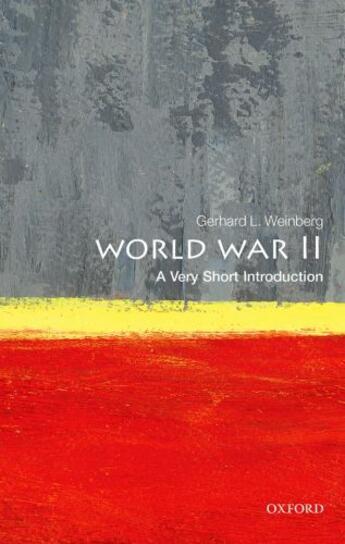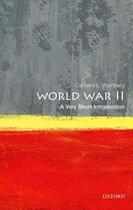-
Nombre de pages : (-)
-
Collection :
(-)
-
Genre :
(-)
-
Thème :
Non attribué
-
Prix littéraire(s) :
(-)
Résumé:
The enormous loss of life and physical destruction caused by the First World War led people to hope that there would never be another such catastrophe. How then did it come about that there was a Second World War causing twice the 30 million deaths and many times more destruction as had been... Voir plus
The enormous loss of life and physical destruction caused by the First World War led people to hope that there would never be another such catastrophe. How then did it come about that there was a Second World War causing twice the 30 million deaths and many times more destruction as had been caused in the previous conflict?
In this Very Short Introduction, Gerhard L. Weinberg provides an introduction to the origins, course, and impact of the war on those who fought and the ordinary citizens who lived through it. Starting by looking at the inter-war years and the German invasion of Poland in September 1939, he examines how the war progressed by examining a number of key events, including the war in the West in 1940, Barbarossa, The German Invasion of the Soviet Union, the expansion of Japan's war with China, developments on the home front, and the Allied victory from 1944-45. Exploring the costs and effects of the war, Weinberg concludes by considering the long-lasting mark World War II has left on society today.
ABOUT THE SERIES: The Very Short Introductions series from Oxford University Press contains hundreds of titles in almost every subject area. These pocket-sized books are the perfect way to get ahead in a new subject quickly. Our expert authors combine facts, analysis, perspective, new ideas, and enthusiasm to make interesting and challenging topics highly readable.
Donner votre avis















